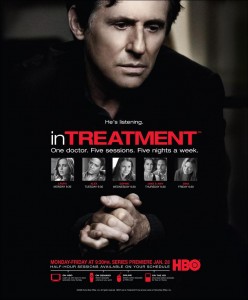 So how can you stay true to yourself as a writer, especially when one is supposed to be imitating another writer’s voice? For one thing, one can stop chasing fads or writing what one think the showrunner might want to see. Jane Espenson, who has written for Buffy the Vampire Slayer, Battlestar Galactica and Game of Thrones and has also created her own Web TV show, Husbands, talks to me about how important it is to trust your own instincts and your own good taste. She is not the only one: Jenny Bicks encourages “writing what you want to write, going towards the love” and Tom Fontana goes as far as to very simply state that “being successful is being faithful to oneself.”
So how can you stay true to yourself as a writer, especially when one is supposed to be imitating another writer’s voice? For one thing, one can stop chasing fads or writing what one think the showrunner might want to see. Jane Espenson, who has written for Buffy the Vampire Slayer, Battlestar Galactica and Game of Thrones and has also created her own Web TV show, Husbands, talks to me about how important it is to trust your own instincts and your own good taste. She is not the only one: Jenny Bicks encourages “writing what you want to write, going towards the love” and Tom Fontana goes as far as to very simply state that “being successful is being faithful to oneself.”


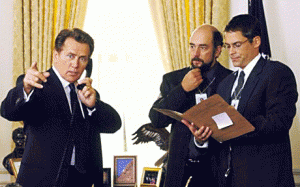 One thing’s for sure: people don’t go to writing to be rewritten. But they still are, first and foremost by the showrunner. The showrunner is the writer who tells the writers what to do, and who will eventually do it herself.
One thing’s for sure: people don’t go to writing to be rewritten. But they still are, first and foremost by the showrunner. The showrunner is the writer who tells the writers what to do, and who will eventually do it herself. The comparison with a novel or with watching a very long movie is a good one for yet another reason: serialization means that you cannot watch the episodes in whichever order they reach you. You have to watch the whole season as if you were watching a 12-hour movie. Terence Winter, creator of Boardwalk Empire and one of the writers for The Sopranos) talks about how the effort still goes towards ensuring that each episode may stand alone, as if it were a mini-movie. So when you just happen to watch this one it still has its own beginning, middle and end, and it makes sense. But it’s like one chapter in a book. To really appreciate it you have to watch the whole series, as you would read a book.
The comparison with a novel or with watching a very long movie is a good one for yet another reason: serialization means that you cannot watch the episodes in whichever order they reach you. You have to watch the whole season as if you were watching a 12-hour movie. Terence Winter, creator of Boardwalk Empire and one of the writers for The Sopranos) talks about how the effort still goes towards ensuring that each episode may stand alone, as if it were a mini-movie. So when you just happen to watch this one it still has its own beginning, middle and end, and it makes sense. But it’s like one chapter in a book. To really appreciate it you have to watch the whole series, as you would read a book. 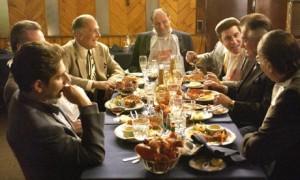 So should we be discussing TV series as nothing less than long cinematic narratives? And if so, what would that mean? It is fair to say that TV, just half the age of film, has only recently (perhaps in the last 15 years) come into its own. Writers have only recently learned to take advantage of the unique powers of the medium itself. For years the focus was on each episode being a complete story, a standalone. Not only in procedurals but in series generally, the dramatic focus was on the unit of the episode. A TV episode was a mini-movie (much as a web episode is a mini-TV episode now). Then the primary canvas of the TV medium became the season.
So should we be discussing TV series as nothing less than long cinematic narratives? And if so, what would that mean? It is fair to say that TV, just half the age of film, has only recently (perhaps in the last 15 years) come into its own. Writers have only recently learned to take advantage of the unique powers of the medium itself. For years the focus was on each episode being a complete story, a standalone. Not only in procedurals but in series generally, the dramatic focus was on the unit of the episode. A TV episode was a mini-movie (much as a web episode is a mini-TV episode now). Then the primary canvas of the TV medium became the season. 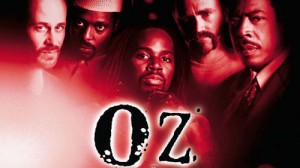 The prevailing idea is that film, like any other art form, is made by a single genius. TV drama is, however, more often than not the result of collaboration between many writers and minds. How is that possible, and what does it mean?
The prevailing idea is that film, like any other art form, is made by a single genius. TV drama is, however, more often than not the result of collaboration between many writers and minds. How is that possible, and what does it mean?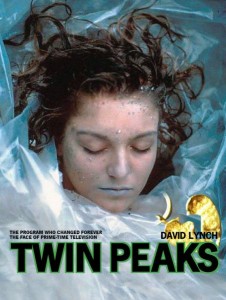 Filmmakers have always flirted with television. One has only to recall, from 1980, Rainer Werner Fassbinder’s Berlin Alexanderplatz, a series of, notably, thirteen 52-minute episodes plus an epilogue, or David Lynch’s Twin Peaks (1990/1991), which lasted for two seasons, the first with eight and the second with twenty two 50-minute episodes (the pilots were feature-length) or indeed Lars Von Trier’s The Kingdom (1994), a series of eleven 55-minute episodes. Cinema’s flirtation with the new form in fact started much earlier, perhaps with Roberto Rossellini’s infamous 1962 news conference where he declared that cinema, the medium for which he had directed such classics as Rome, Open City and Paisan, was dead and that he would henceforth be making movies for television.
Filmmakers have always flirted with television. One has only to recall, from 1980, Rainer Werner Fassbinder’s Berlin Alexanderplatz, a series of, notably, thirteen 52-minute episodes plus an epilogue, or David Lynch’s Twin Peaks (1990/1991), which lasted for two seasons, the first with eight and the second with twenty two 50-minute episodes (the pilots were feature-length) or indeed Lars Von Trier’s The Kingdom (1994), a series of eleven 55-minute episodes. Cinema’s flirtation with the new form in fact started much earlier, perhaps with Roberto Rossellini’s infamous 1962 news conference where he declared that cinema, the medium for which he had directed such classics as Rome, Open City and Paisan, was dead and that he would henceforth be making movies for television. 